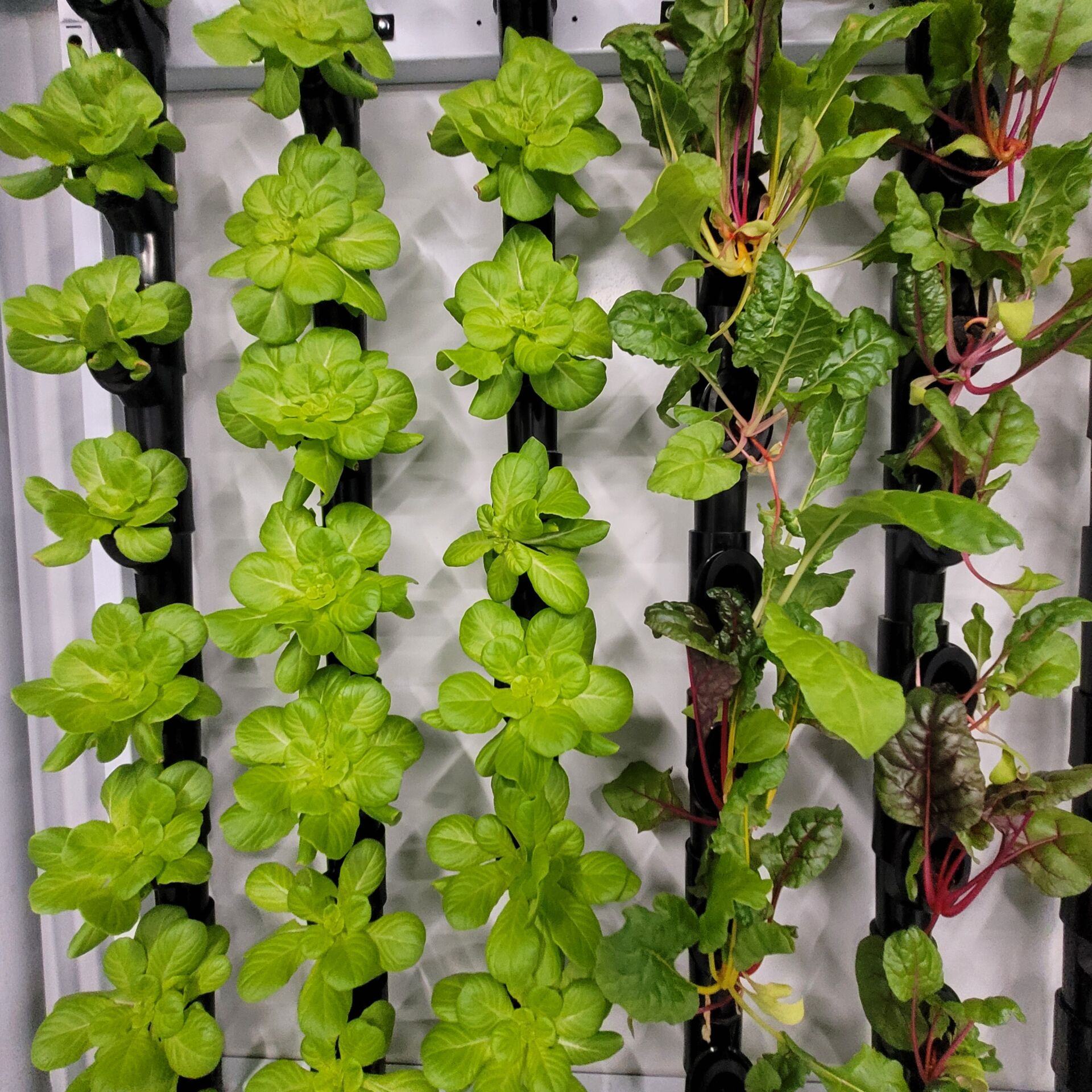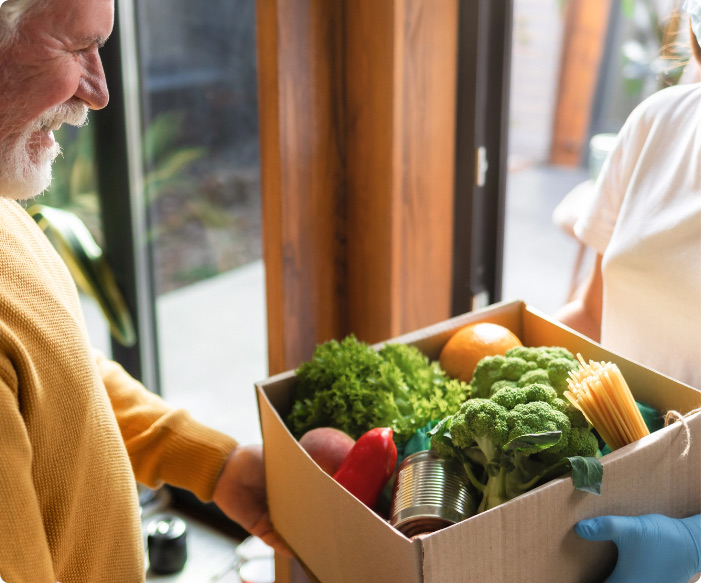Building vibrant communities through local food, technology, and education.


Resilient Growth
At NuLeaf Farms, we believe strong communities grow from the ground up—starting with local, reliable food systems. By integrating Controlled Environment Agriculture (CEA) into your community development plans, you can create resilient, sustainable food ecosystems that support health, economic opportunity, and social connection. Our modular indoor farms and smart greenhouses provide year-round fresh produce, reduce reliance on distant supply chains, and create meaningful spaces for education and workforce training. Whether you’re a developer, municipality, or Indigenous community, NuLeaf helps you build communities that thrive today and into the future.

Indoor farming’s ability to provide a stable and sustainable source of food contributes to building resilient communities and alleviating food insecurity, particularly for vulnerable populations.
Communities benefit from increased access to fresh, locally grown produce that is free from harmful chemicals, contributing to a healthier and more resilient environment for communities.

Indoor farms often become community hubs where people gather, exchange knowledge, and work together towards sustainable food production, fostering a sense of ownership and strengthening bonds.

As indoor farming expands, it generates a demand for specialized workforce training and education, opening avenues for skills development programs, vocational training, and job opportunities for many industries.

Nourishing Communities With Fresh, Nutrient-Rich Local Food
Controlled Environment Agriculture (CEA), especially hydroponic farming, delivers fresh produce that often surpasses traditional supply chains in nutrition and quality. Unlike conventionally grown food, which can spend days or weeks in transit and storage, hydroponic crops are harvested at peak ripeness and delivered directly to local communities—preserving more vitamins, minerals, and flavor. These farms use precise growing conditions to optimize nutrient density and eliminate exposure to harmful pesticides and soil contaminants. The result? Healthier, safer, and more nourishing food that supports community wellness and strengthens local food systems.
Indoor farming has the power to transform our communities by addressing various challenges and fostering positive change, including promoting food security, sustainability, education, and economic growth. Together, we can contribute to the overall well-being of our community members and help alleviate food insecurity.
By incorporating indoor farming practices, food banks can enhance their ability to provide fresh, healthy, and locally sourced food to their communities.
Indoor farming holds great potential in supporting non-profit organizations by ensuring a reliable and consistent supply of nutritious food for their initiatives.
By cultivating fresh food on-site, community centers can offer workshops and programs on sustainable agriculture while promoting healthier food options.
Indoor farms promote hands-on learning experiences, environmental education, and healthy habits through a reliable source of fresh, healthy foods.
Engaging Minds, Growing Futures
Food hubs are more than just farms — they’re gathering places where food, learning, and community intersect. By combining local food production with commercial kitchens, classrooms, and hands-on training programs, these hubs become vibrant spaces where people of all ages and backgrounds come together to grow, cook, learn, and connect. From youth gardening workshops and cooking classes to cultural events and community markets, food hubs foster social connection and create a sense of shared purpose.
Beyond their role in food access, these hubs act as vital infrastructure for community development — offering inclusive spaces that promote food literacy, job readiness, and economic opportunity. With integrated programming in culinary skills, nutrition, and sustainable agriculture, they open career pathways and empower local residents to play an active role in building healthier, more resilient local food systems. Rooted in place and powered by people, food hubs bring communities together and cultivate long-term wellbeing.


Creating vibrant, resilient communities starts with thoughtful planning — and local food can be the cornerstone. From the initial design phase to long-term operations, NuLeaf helps community developers, non-profits, and Indigenous partners integrate smart food infrastructure that supports nutrition, education, and economic opportunity. By combining vertical farms, commercial kitchens, and learning spaces, these food hubs become more than just production facilities — they become gathering places, job creators, and cultural anchors.
This four-part series explores the key elements of successful community food initiatives:
Start by aligning your community’s goals with a food-first strategy — from zoning and site planning to identifying the right stakeholders and operating models.
Leverage the power of Controlled Environment Agriculture to deliver fresh, nutritious produce regardless of climate, while creating local jobs and reducing supply chain risk.
Incorporate kitchens, classrooms, and gathering spaces that invite residents to learn, cook, grow, and celebrate food together — making the farm a true community hub.
Create measurable, long-term value through economic development, food security, and climate resilience — ensuring your investment serves generations to come.
Ready To Build Something That Lasts?
Whether you’re planning a new neighborhood, revitalizing a rural town, or strengthening local services — integrated food systems can be the catalyst for lasting impact. NuLeaf Farms partners with visionary developers, community leaders, and organizations to design and build scalable, sustainable food hubs that bring people together. Let’s create a place where growing food also means growing futures.
Start a Conversation Today.
Contact us
